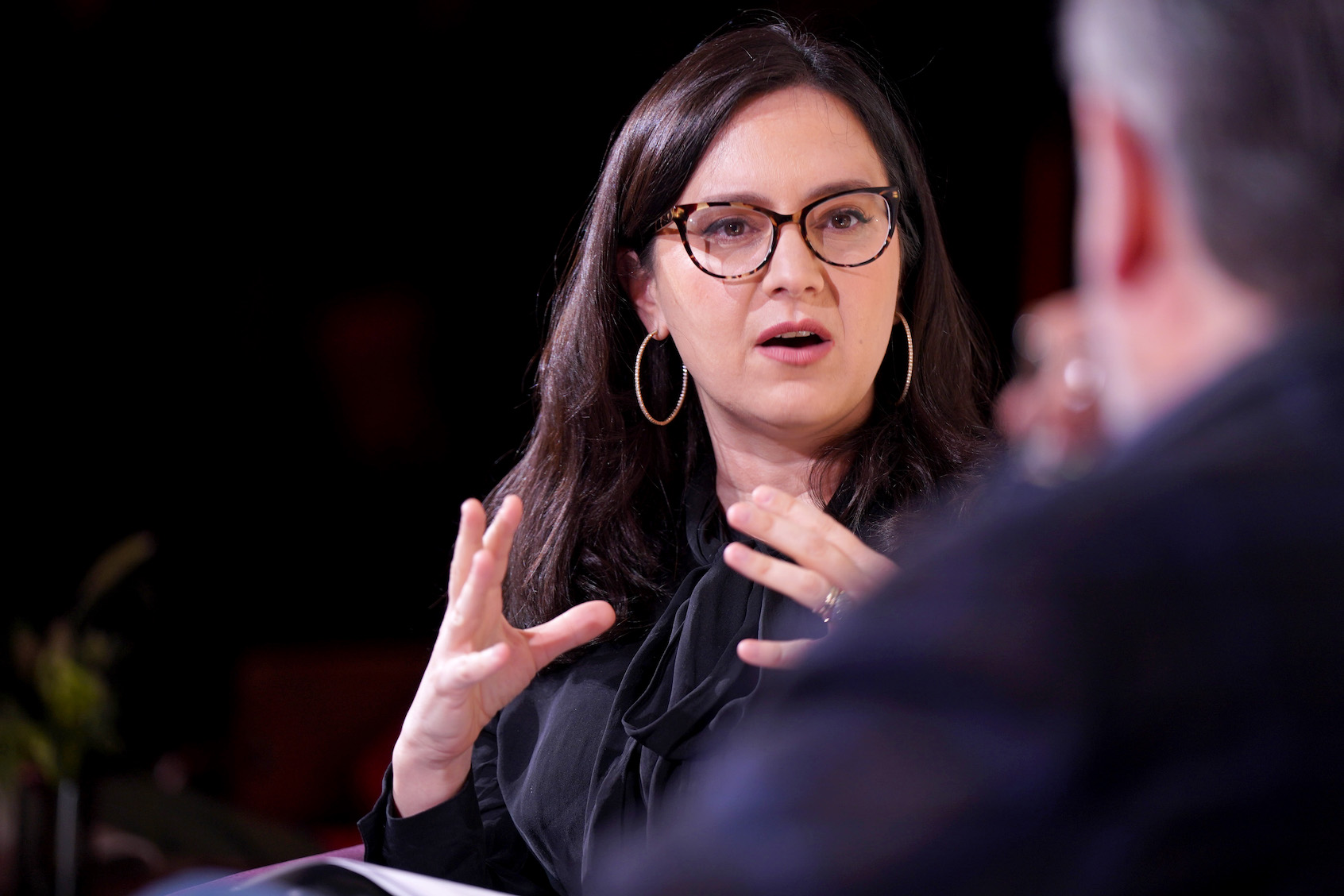Bari Weiss’s appointment as editor-in-chief of CBS News is being heralded by some as a watershed moment for LGBTQ+ media representation. She is the first openly gay person to lead the iconic network, and her visibility in such a prominent role, at least on paper, marks real progress.
But I’m not applauding.
As an openly gay working journalist who covers LGBTQ+ issues, I’m not encouraged by this promotion. I speak with sources on a daily basis including transgender student organizers, queer civil rights leaders and LGBTQ+ academics. A consistent message emerges from those conversations: representation alone isn’t enough.
Weiss’ identity as a lesbian doesn’t negate the harm she has done by amplifying voices hostile to trans people, giving oxygen to transphobic rhetoric and framing bigotry as reasoned dissent. In fact, it makes that damage more insidious.
When a member of a marginalized community breaks barriers while also using their platform to cause injury to other community members, that’s not progress. In this case, Weiss’ identity as a lesbian doesn’t negate the harm she has done by amplifying voices hostile to trans people, giving oxygen to transphobic rhetoric and framing bigotry as reasoned dissent. In fact, it makes that damage more insidious.
Weiss first rose to prominence as an opinion staff editor and writer at the New York Times. After resigning from the newspaper in 2020 — and publishing a blistering resignation letter citing a “lack of ideological diversity” as one of her reasons — the following year she launched The Free Press, a personal Substack that quickly grew into a media hub for so-called “anti-woke” content. The publication, which was bought by CBS News’ parent company Paramount and will continue to operate, has styled itself as a haven for those who feel silenced by mainstream media. But in practice, it often serves as a megaphone for reactionary voices, particularly on issues of race, gender and trans identity.
What’s especially concerning is the frequency with which The Free Press has published or platformed content that undermines trans rights and dignity. Essays questioning the legitimacy of gender-affirming care. Coverage featuring arguments that describe trans identities as a social contagion. Columns implying that trans people, especially youth, are being manipulated or misled by progressive politics. These are not isolated incidents; they reflect an editorial stance that sees trans lives not as lived experiences, but as topics for debate.
Transphobia doesn’t have to announce itself with slurs or overt hostility. It often arrives dressed in intellectual respectability framed as concern, skepticism or “just asking questions.” That’s the tone Weiss has mastered. But the result is the same: Increased stigma, decreased safety and greater justification for discriminatory policies.
Want more sharp takes on politics? Sign up for our free newsletter, Standing Room Only, written by Amanda Marcotte, now also a weekly show on YouTube or wherever you get your podcasts.
This isn’t happening in a vacuum. Since the beginning of President Donald Trump’s second term, we’ve seen an unprecedented wave of anti-LGBTQ+ legislation, much of it aimed squarely at trans people. From bathroom bans to restrictions on health care and sports participation, conservative lawmakers across the country are targeting the rights and freedoms of trans Americans. The rhetoric used to justify those laws often mirrors the narratives promoted by “anti-woke” media like The Free Press: That trans people are dangerous, delusional or in need of saving.
Journalists have a responsibility to not reinforce those narratives, and especially not under the guise of neutrality or balance. When news outlets treat trans lives as controversial subject matter rather than communities under attack, they contribute to the very climate that makes violence and discrimination more likely. That’s what makes Weiss’ leadership at CBS News so worrisome.
Proponents of Weiss’s promotion will argue that she’s simply championing free speech and heterodox thought. But too often, that “heterodoxy” serves as cover for regressive politics. It’s not brave to platform transphobic views in 2025; it’s dangerous. And it’s not courageous to amplify voices who already dominate our legislative battles and opinion pages.
We need your help to stay independent
CBS News is a legacy institution with immense influence, and its leadership matters — not just in terms of business strategy or newsroom management, but also in setting the tone for the kinds of journalism that get prioritized and the kinds of voices that are empowered. With Weiss at the helm, it’s reasonable to worry that the network could move further into the same false-equivalence territory that has plagued much of mainstream media, where harmful ideologies are treated as legitimate “sides” in a public conversation.
This is a critical moment for journalism. Trust is fragile. Communities are under assault. And audiences are hungry for media that doesn’t simply reflect power back to itself, but challenges it on behalf of those who are most at risk.
Representation matters, but without solidarity it is hollow. LGBTQ+ media visibility is only meaningful if paired with a commitment to truth, equity and, most importantly, care for the most vulnerable among us. Bari Weiss’ appointment may be a milestone. But when a queer public leader uses their space to punch down or to platform harmful ideas, that isn’t progress. It’s betrayal.
If Weiss’ leadership reflects the same editorial posture she’s championed in the past, where trans lives are debated rather than defended, it will not be a victory for queer people. It will be a warning.

